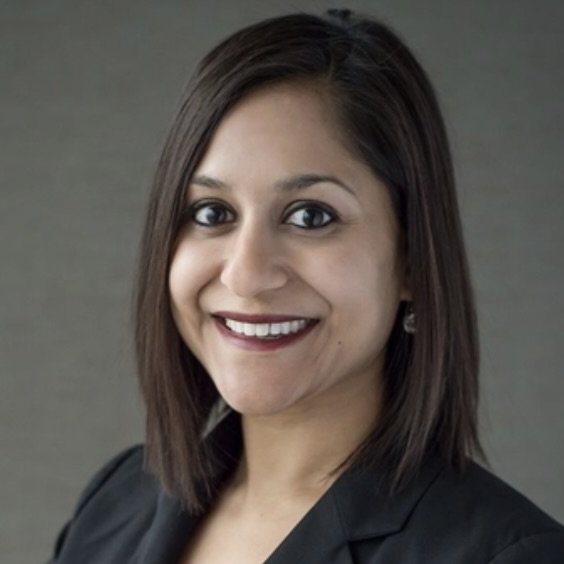Watching a Juris Doctor Save Lives: Partnering with Lambda Legal to Fight for Healthcare for All
By Anna Prakash, partner at Nichols Kaster, PLLP
At the Impact Fund Class Action Conference in February of 2020, my law partner leaned over to me and said, “we should bring these cases.” She was talking about the incredible victory in Flack v. Wisconsin Department of Health Services, in which Joe Wardenski and his colleagues at Relman Colfax, the National Health Law Program, and Davis & Pledl won class certification and summary judgment for their clients in a case challenging Wisconsin Medicaid’s categorical exclusion on gender-confirming treatments for transgender beneficiaries with gender dysphoria. We immediately texted our associate, Nicole Schladt, who reached out to her former boss at Lambda Legal, Tara Borelli. Fast forward to the fall of 2020 – We had a case!
Together with Lambda Legal and Walt Auvil of the Employment Law Center in West Virginia, my firm Nichols Kaster filed suit against West Virginia Medicaid on behalf our clients Christopher Fain and Shauntae Anderson. In that case, Fain v. Crouch, we challenged the state Medicaid program’s categorical exclusion of gender affirming surgical care under the Equal Protection Clause, the Affordable Care Act, and the Medicaid Act. The district court litigation was a success. Nicole Schladt has written and spoken with the Impact Fund community about our class certification and summary judgment victories at the district court level. But I’m going to focus on what happened next – West Virginia’s appeal to the Fourth Circuit.
After briefing, Tara Borelli and I flew to Richmond for the argument, buoyed by Tara’s earlier Fourth Circuit argument in Kadel v. Folwell, which challenged North Carolina’s state employee health plan’s exclusion of gender affirming care. The Kadel argument had gone well, and we were optimistic. But when we got to Richmond, we learned that we would have a different panel entirely: Two judges appointed during the last administration and one appointed by Bill Clinton. Tara brilliantly argued the merits, but the majority of the panel’s questions made us believe that we had an uphill battle. Of course, when I got up to argue class certification, no one asked me anything – the procedural requirements of Rule 23 rightly took a backseat to the substance of our clients’ claims. And then we flew home and waited. What happened next was totally unexpected. Without the panel issuing an opinion, the Fourth Circuit sua sponte ordered back-to-back en banc argument in Fain and Kadel. So again, we flew to Richmond.
The Fourth Circuit affirmed that healthcare plans that cover medically necessary treatments for certain diagnoses but bar coverage for those same medically necessary treatments for a diagnosis unique to transgender patients violate the law.
The en banc arguments began with Kadel. Not being counsel in that case, I took a seat in the gallery and stood as the judges filtered in. And once argument began, the judges were active participants. They peppered the state, and then Tara was up. I watched her skillfully and with her calm and collected demeanor answer every question for over an hour without once misspeaking or sounding anything less than thoroughly persuasive. At the break before argument in Fain, I worked my way up to counsel’s table with some notes about Rule 23 that I definitely did not need because, again, the entire focus was on the substance. Argument began just as Tara was rushing back into the courtroom and, with a few chuckles from the judges, they sympathized with her having to argue both cases and needing a break. But then she did it again – another flawless hour or more of succinct and powerful answers to questions that were favorable, unfavorable, and in some instances, asked by one judge to another.
But here are the overwhelming takeaways for me. What it takes to be a plaintiff in a case like this, where your entire identity is being argued over, is enormous bravery and strength. Christopher Fain and Shauntae Anderson are heroes, plain and simple. This case could not have happened without them. They have secured critical healthcare for scores of West Virginians and others in the Fourth Circuit. Truly, when it comes to these cases—cases that ask for fundamental rights to be recognized, cases that seek support for those who might otherwise not have any, cases that lift up marginalized communities—there is more at stake than the law. The statistics about trans adult and youth and rates of suicide or suicidal ideation are staggering. But access to the right healthcare is one way—a critical way—to provide support. And as I sat in that courtroom watching Tara advocate and persuade, I knew that she was doing all she could to save lives, just as Christopher and Shauntae had done.
We prevailed. In April 2024, the Fourth Circuit affirmed the lower courts’ decisions in both Fain (now Anderson) and Kadel, holding that healthcare plans that cover medically necessary treatments for certain diagnoses but bar coverage for those same medically necessary treatments for a diagnosis unique to transgender patients violate the law. As we’ve acknowledged in the press, this decision will save lives. It has been an honor to work with and observe Tara do this alongside my firm, Walt, Nicole, and all of the amici who have had our clients’ backs. And as always, it is an honor to belong to this Impact Fund community, who inspires as Joe and his team did in Flack, and supports lifesaving work like this.


